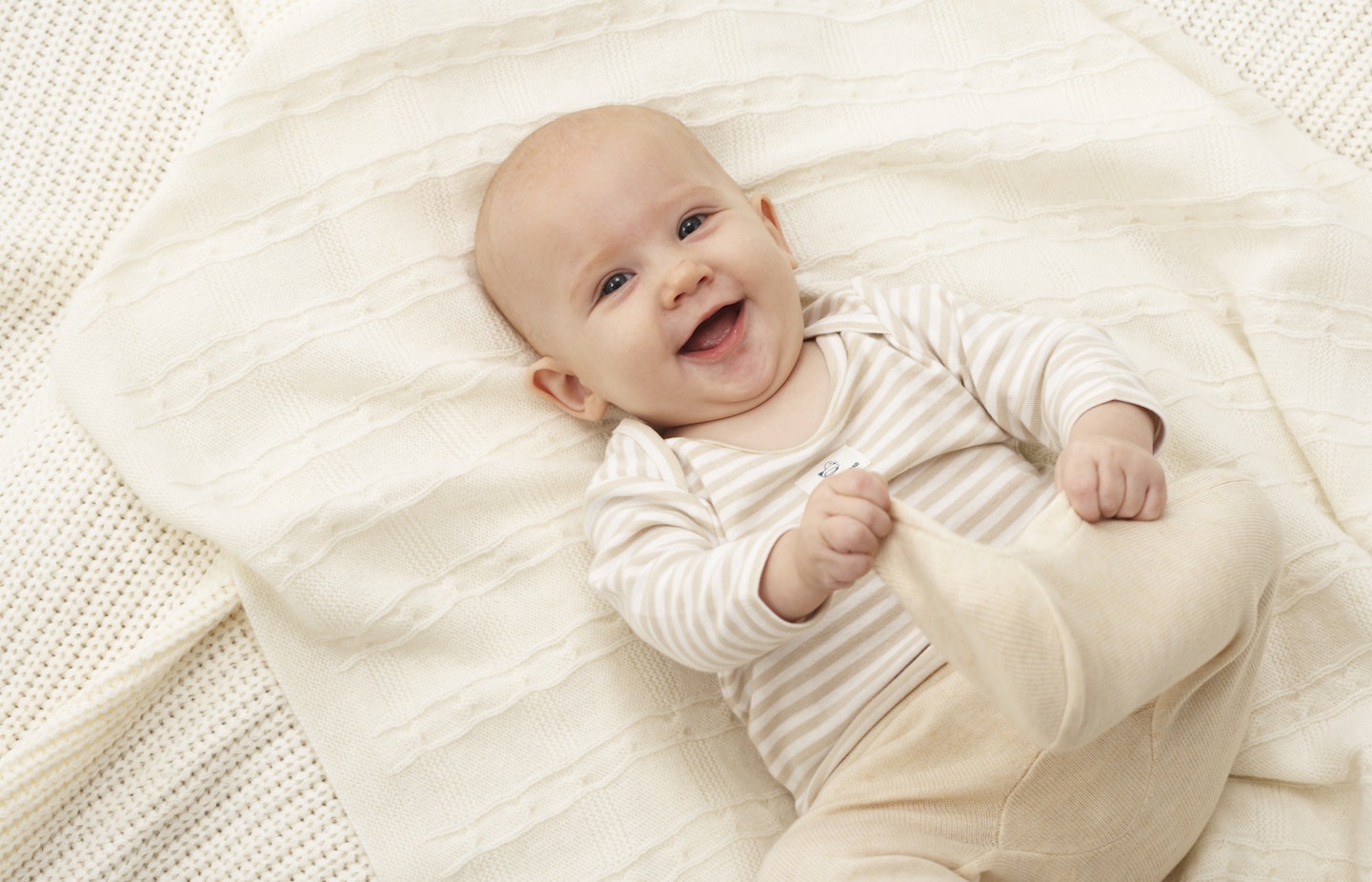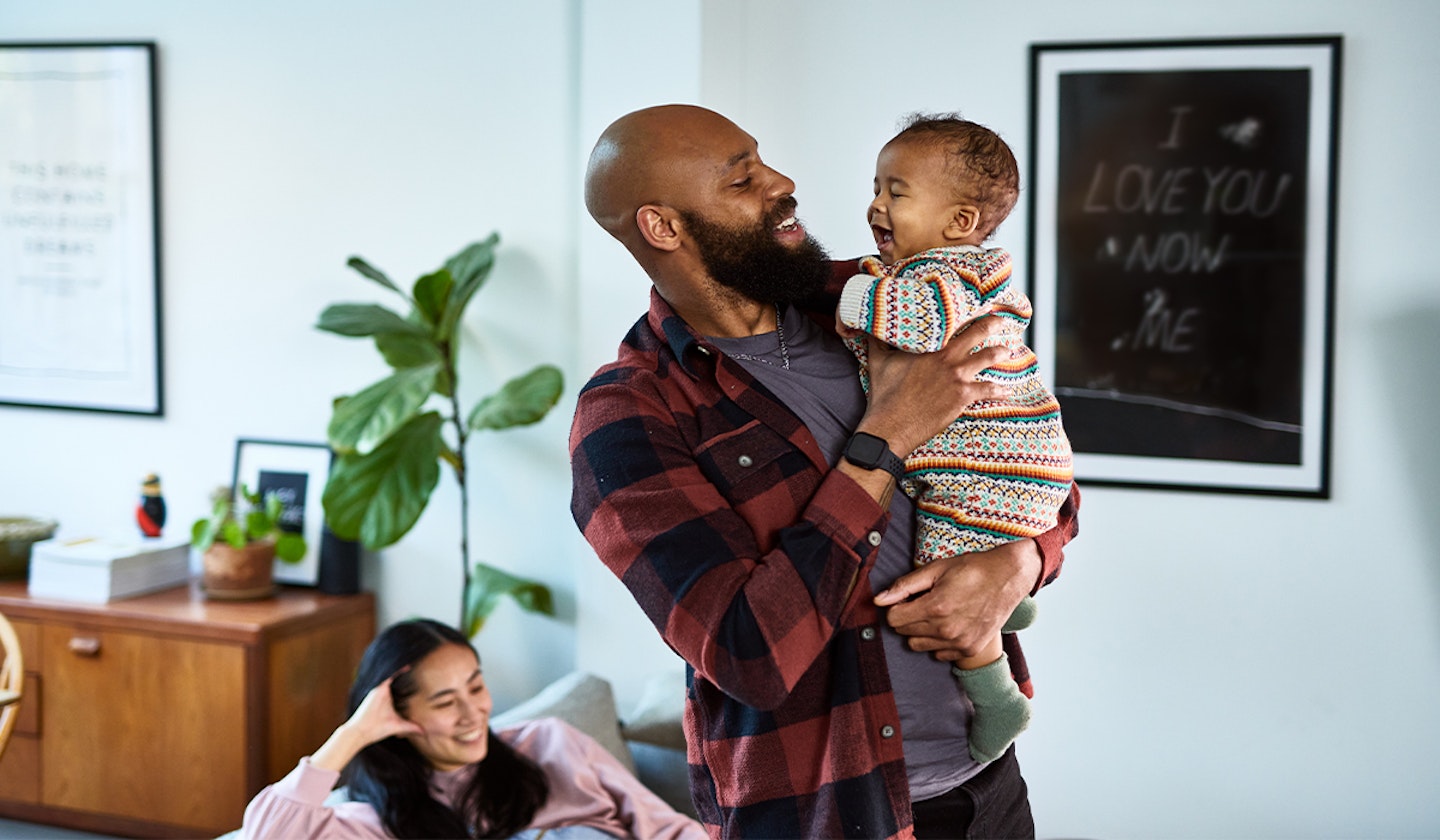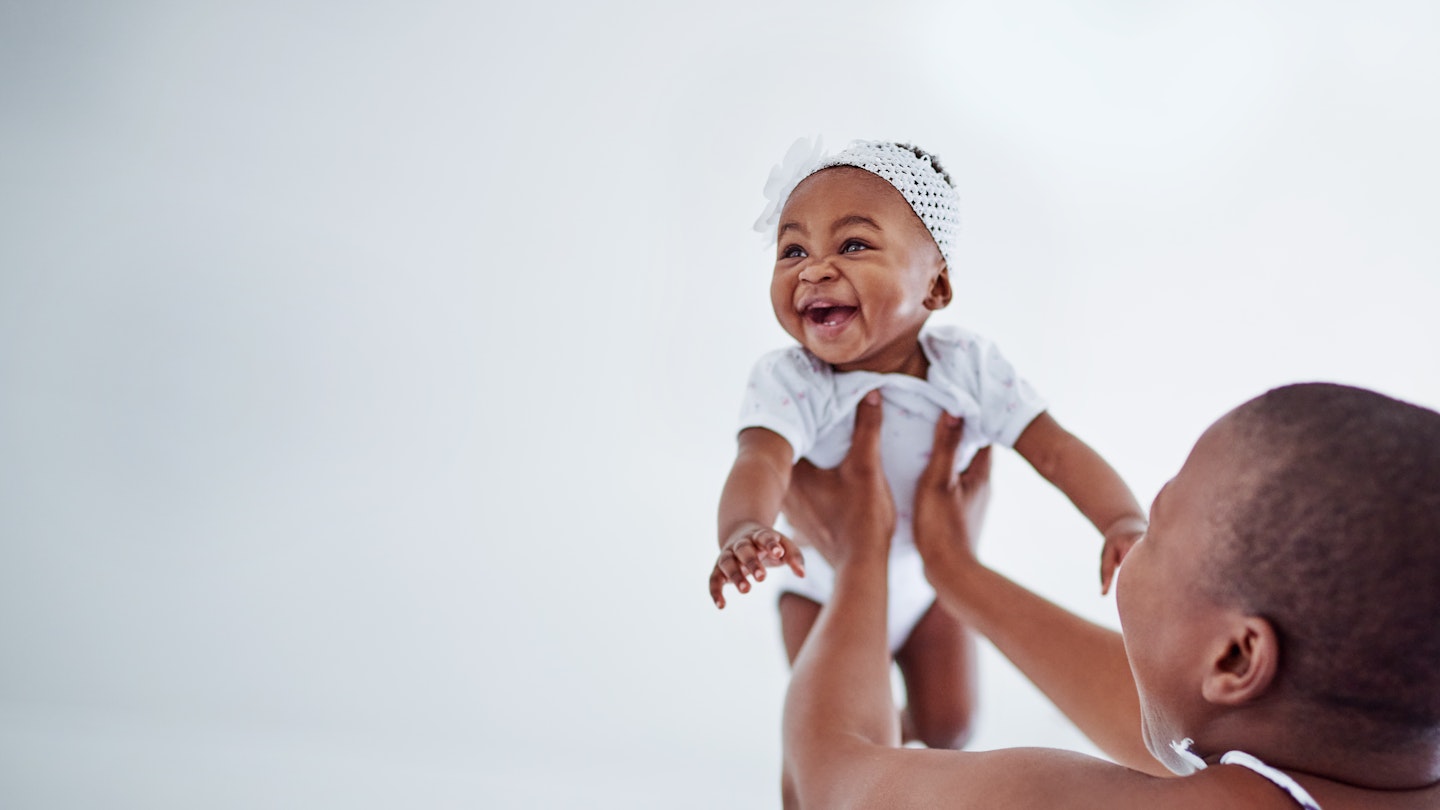There are lots of exciting things happening in your child's first year but the one baby milestone that all parents cherish is when babies give their first proper smile (which isn't just gas).
To help you encourage your baby to show you their real first smile, we caught up with expert, Dr Caspar Addyman who has been studying the science of smiles and laughter in babies and children under two years of age.
If you're still waiting for this special moment with your little one, despite constantly imitating animal sounds, here is everything you need to know about when their first smile will finally happen, and what you can expect from this very special developmental milestone.
Reflex smile vs real smile: How to tell the difference
While you might have seen your newborn baby's little mouth make a shape that mimics a smile, these aren't considered 'social' smiles that are sparked by a feeling of pleasure or amusement. Often, these early reflex smiles come as a result of them copying your facial expressions or while they're sleeping.
Reflex smiles are short and happen randomly, such as when they're sleeping. "Your baby’s first reflex smiles are likely to be their earliest natural expressions of contentment," says Caspar. "And they may happen far earlier than you think. Third-trimester scans have even picked up babies smiling in the womb."
Smiles that genuinely reflect positive emotion are activated involuntarily by the emotional centre of the brain, and involve the muscles around the cheeks and eyes, as well as the mouth.
A real social smile is different from a reflex smile, as it's baby's response to something they've either seen or heard. It could be seeing your face or responding to your voice. By this point, your baby's vision is improving a lot, and they will recognise who you are, and what you look like. You'll be able to tell when your baby is giving a real smile as their whole face will light up.

When do babies smile?
Every baby is different and they all hit milestones at different times, but once the time of the reflex smile passes, their first 'proper' smile will come when they reach two months old.
If you're already wondering when babies laugh, you can expect this to follow shortly after your baby's first smile occurs.
Do newborns smile?
Research has said babies are born smiling and developing babies appear to start to smile in the womb. Neonatal reflex smiling occurs from birth to five weeks old but has no purpose - it's spontaneous and has no relevance to what they have seen.
How to encourage your baby to smile
If your moment hasn't come just yet and you want to know how to encourage your baby to smile, the key is to talk to them often and make lots of eye contact.
"We asked the real experts when it comes to babies – their parents – to fill out surveys featuring a range of questions on everything from what age their baby started smiling, to what made them laugh most," explains Caspar.
"We’ve learnt that smiling and laughing are not just signs of contentment. Smiles can help us comprehend just how much a baby understands their world."
Casper's research found that as well as talking and eye contact, it's good to be a bit silly with your baby, as they tend to react more to this. Make funny faces and noises, and even try out 'peek-a-boo' and see what they do. The more you give, the more you'll get back but ultimately, your baby will flash a smile when they're ready.
Around six months old, your baby will also try an open-mouth smile which is followed by laughter. Your baby will be selective with who they share their smile with – the special people in their life. But, don't worry, your time is just around the corner!
Once your baby has cracked their first grin, they will continue to do so regularly, and it won't be long before you hear some squeals of excitement and other noises too.
Make sure you mark this momentous occasion, although you might not be lucky enough to catch the official first smile on camera, there's sure to be plenty more that follow so don't worry too much!

How smiling aids your baby's development
Did you know that all those gorgeous smiles are critical to your baby’s ongoing social and emotional development?
"Babies learn about the world around them through interacting with other humans," explains Caspar. "And their smiles ensure they get as much interaction as possible with others."
As your baby grows and develops, they start to smile as an emotional response to other people. For example, think about the last game of peek-a-boo you played with your little one. "It’s likely that before the age of six months, your baby is smiling because they are actually surprised by your reappearing face," explains Caspar. "But when they're older and can predict the outcome, their smiles are a sign that they are enjoying the game's social element.’ They're enjoying your company!
By 10 months old, your baby is likely to be able to transfer their smile from an object to a person. So, although they're not yet able to express the sentiment in words, by this age they've moved beyond a smile that signifies only, ‘I like this object’, to one that expresses a more complicated emotional life and level of comprehension: ‘I like this object and want to share that enjoyment with you.’
As they near one year old, your baby is an expert smiler, and will have worked out for themself that smiling can help them get what he wants – yes, they've mastered the ‘fake’ smile. "By the age of one year, babies have such a sophisticated understanding of the power and meaning of their smile that they’ll even smile for the camera!" says Caspar.
Smiling will always play a large part in your child’s life, and they'll smile, on average, 400 times a day. "It might be that your child is more alert and engaged when they are smiling," says Caspar, "As studies show that toddlers learn much better when they are laughing or smiling than when they are serious. So, smiling is a central component in your baby’s early development. We should all do it more!"
What if my baby isn't smiling yet?
If you've hit the three-month mark without noticing a smile from your baby, then it's a good idea to see your paediatrician. There may not be anything to worry about but it's good to make sure that there are no developmental delays at play.
In preparation for your appointment, you may want to spend some time recording and tracking how your baby responds to things around them such as sounds, bright lights and when you talk to them. Consider how they communicate and how their eyes focus on the things around them.
About the expert
Dr Caspar Addyman is a developmental psychologist and former director of the Goldsmiths InfantLab. He is particularly interested in how babies adapt to the world and how we can support their learning. His career has focussed on a range of areas from the foundations of language, time perception and sleep, and most notably the importance of laughter and positive emotion in early life.
